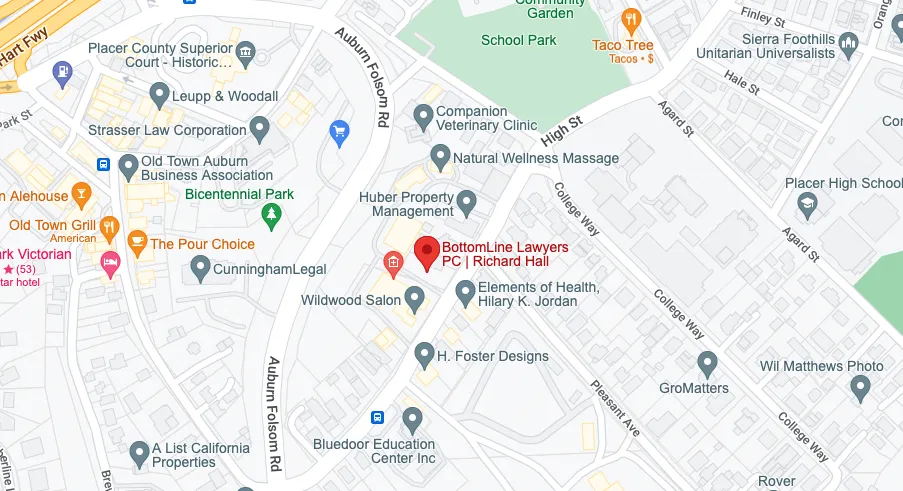Navigating Will Contests in California: Who Holds the Right to Challenge?
While most California estates are settled without conflict, sometimes the validity of a loved one’s will is called into question. In situations where disagreements arise among family members and heirs regarding the proper distribution of an estate, it is common to initiate a probate challenge. If you find yourself wondering who can challenge a will in California, you’re not alone.
California has its own set of rules and regulations governing this process. The law outlines specific criteria for challenging a will, and the complexities of the legal system can be daunting. Whether you are a potential contestant or an interested party, it is important to know the basics of challenging a will in California.
Quick Summary:
This article aims to provide clarity on the individuals who have the right to challenge a will in California.
- Understanding Will Challenges in California: California estates, while often settled without conflict, can face probate challenges, especially when disagreements arise among family members about asset distribution.
- Specific Criteria for Challenging a Will: California’s probate laws outline specific criteria for challenging a will, making it essential for potential contestants and interested parties to grasp the legal nuances.
- Who Can Challenge a Will in California: In California, those with legal standing to challenge a will include interested parties such as spouses, children, and close relatives, while disinherited beneficiaries, creditors with valid claims, and individuals questioning the testator’s capacity.
Interested Parties
In California, individuals who have a direct interest in the estate, such as spouses, children, or close relatives, are typically granted the legal standing to challenge a will. Their involvement in the probate process makes them eligible to contest the will if they believe there are grounds to do so.
Interested parties who generally have the legal standing to challenge a will include:
- Spouses: Widows, widowers, and current spouses
- Children: Natural or adopted children
Beneficiaries Excluded or Disinherited
There are instances where individuals find themselves excluded or disinherited, raising questions about the fairness and validity of the testamentary document. In California, beneficiaries who have been intentionally left out or received a disproportionately small share hold the legal standing to challenge a will.
- Named Beneficiaries: Individuals specifically mentioned in the will have a direct interest in its contents.
- Heirs: Individuals who stand to inherit according to intestate succession laws if the will is deemed invalid.
- Disinherited Individuals: When a testator intentionally omits a beneficiary from their will or assigns them a minimal share compared to what they might reasonably expect, the excluded party may feel compelled to contest the will.
Executor or Trustee Disputes
In some cases, conflicts arise between those responsible for following the provisions of the will. Disputes may involve issues related to the interpretation or execution of the will.
Executors, trustees, or administrators carry out the wishes of the deceased as outlined in the will or according to the laws of intestacy. However, there can be situations where these individuals may need to address issues related to the will or the administration of the estate.
Will Contest by Others
If beneficiaries or interested parties challenge the will, the executor or administrator may be involved in defending the will in probate court. Their role is to ensure that the testator’s wishes are upheld unless there are legal grounds for contestation.
Fulfilling Fiduciary Duties
Executors, trustees, and administrators have fiduciary duties to act in the best interests of the estate and its beneficiaries. If there are concerns about the validity of the will or the actions of the executor, trustee, or administrator, interested parties may take legal action.
If they suspect fraud, undue influence, or other issues in the creation or execution of the will, they may need to take appropriate legal action to fulfill their fiduciary duties.
Undue Influence or Fraud
Many people try to take advantage of elderly individuals, those who are incapacitated, or those who are otherwise vulnerable. When one person exerts undue influence on another person, they are violating California law.
If someone believes that the testator was coerced, manipulated, or deceived into creating or modifying the will against their true intentions, they may challenge the document. Proving undue influence or fraud can be complex and requires substantial evidence.
Undue influence may exist if and when:
- The will writer, or testator, was unusually vulnerable, perhaps due to old age, mental impairment, isolation, or emotional distress.
- The influencer used negligent or coercive tactics such as withholding medication or refusing a person visitation rights to their grandchildren.
- The influencer, perhaps a caretaker or guardian, used their authority or abused that position to influence the terms of the will.
Those Questioning Testamentary Capacity
Legally, anyone who is 18 or older can create a trust or will. People younger than that are considered to lack the capacity to do so. Adults, on the other hand, are presumed to be of sound mind unless it can be proven otherwise. Therefore, if someone has dementia or a substance abuse issue, it is possible to question the person’s testamentary capacity to create a legally binding document.
Any individual with a legitimate interest in the estate may challenge a will on the grounds of the testator lacking testamentary capacity. This implies that the person creating the will was not of sound mind or didn’t fully comprehend the consequences of their actions when drafting the document.
In California, somebody may not be mentally competent, or of sound mind to write a will if:
- They do not have a complete understanding of their assets, properties, accounts, and material possessions.
- They do not understand the nature of the testamentary act. In other words, they do not understand what they are doing by writing or signing a will.
- They do not remember or understand their relationship to living descendants—their spouse, parents, children, grandchildren, or anyone else whose interests may be affected by the creation of a will.
Creditors with Legitimate Claims
Creditors who believe they have a valid claim against the estate can fight for their rights if they suspect fraud or insolvency. While they don’t directly challenge the will itself, they engage in probate proceedings to seek repayment of outstanding debts.
The Role of Our Auburn CA Estate Planning Lawyer in Challenging a Will
From family members and disinherited heirs to creditors with valid claims, the spectrum of potential challengers is diverse. The eligibility to challenge varies, and understanding the complexities of the process is essential. Whether navigating concerns about capacity, undue influence, or beneficiary disputes, seeking legal advice from our Auburn estate planning attorneys at Bottomline Lawyers can guide you through the delicate and impactful journey of challenging a will.
Our estate planning law firm is dedicated to navigating you through the process with clarity and precision. We provide comprehensive legal guidance to help you understand the eligibility criteria and legal grounds for challenging a will. We can help you achieve results that align with your goals, whether you’re contesting a will or defending against a challenge.
Take the first step towards securing your rights and shaping the legacy you deserve. Contact us today to schedule a free consultation and let us guide you through the journey of understanding who can challenge a will in California and how to protect your rights effectively.



